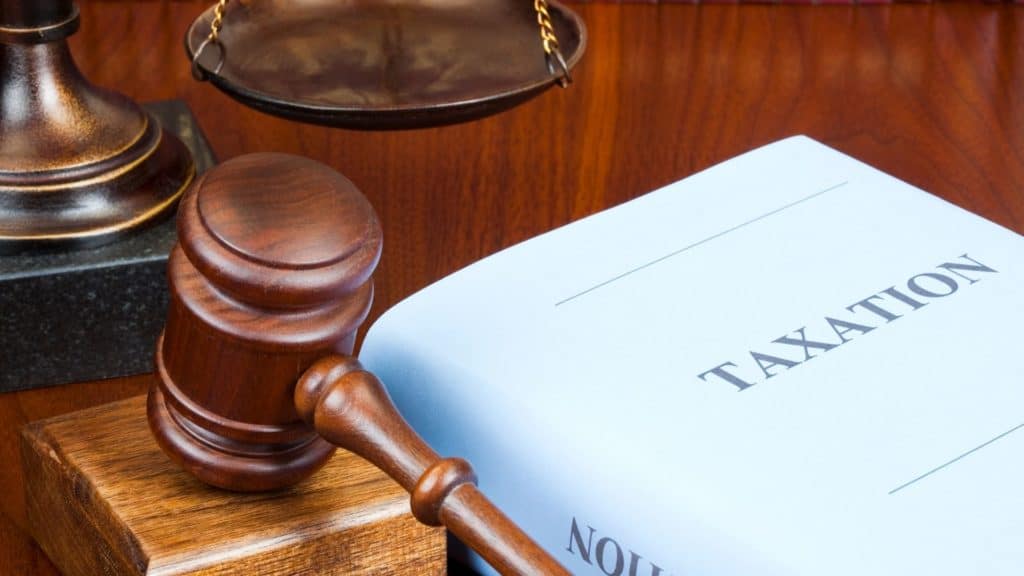The formal investigation procedure need not be re-opened when the fault lies in the legal assessment of the measure in question. Incompatible State aid has to be recovered quickly and effectively, even from insolvent undertakings. Introduction This article examines two recent judgments concerning Greece. The first judgment explains when the Commission does not have to re-open the formal investigation procedure […]
State Aid Law
Blog
State Aid Uncovered Blog
In Lexxion’s State Aid Uncovered blog, Prof. Phedon Nicolaides publishes weekly critical analyses of recent State aid judgments and decisions. Each post presents the key points of a court judgment or EU Commission decision, places it in the context of similar case law or practice, assesses the underlying reasoning and highlights any inconsistencies or contradictions.
Guest contributions from other State aid experts will also be published on the blog at irregular intervals to complement the content of the blog posts.
1. February 2022 |
State Aid Uncovered
by Phedon Nicolaides
25. January 2022 |
State Aid Uncovered
by Phedon Nicolaides
A private investor is not interested in regional development. A private investor recoups its investment in infrastructure from revenue from the operation of that infrastructure. Duplication of infrastructure does not contribute to regional development. Introduction In 2015 the European Commission caused a buzz in the State aid community when it decided that investment aid granted to a small Polish airport […]
18. January 2022 |
State Aid Uncovered
by Phedon Nicolaides
The scope of a tax must be objectively defined in order for those excluded from the tax not to benefit from a selective advantage. Introduction Taxes are burdens, so they fall outside the scope of Article 107(1) TFEU which prohibits selective benefits funded with state resources. Normally, Article 107(1) applies to benefits from tax exemptions or tax derogations which result […]
11. January 2022 |
State Aid Uncovered
by Phedon Nicolaides
There are no rules as to the promptness with which a private creditor must act in order to enforce its claims. However, a hypothetical private creditor need not demand that a debtor be declared insolvent as soon as it fails, without taking any account of its longer-term potential. Introduction When the state accepts to restructure debt owed to it or […]
4. January 2022 |
State Aid Uncovered
by Phedon Nicolaides
State aid up to 100% of the funding gap of a project can be compatible with the internal market. Introduction The European Commission approved investment aid for a Liquefied Natural Gas [LNG] terminal in Alexandroupolis in northern Greece [case SA.55526]. The project involves the following: A Floating Storage Regasification Unit [FSRU] for the storage and regasification of LNG. The construction […]
28. December 2021 |
State Aid Uncovered
by Phedon Nicolaides
A Commission decision finding non-notified aid to be compatible with the internal market cannot remedy the illegality that existed before the Commission decision. Introduction In November 2021, the General Court rejected an appeal by the recipient of illegal aid who had asked the Commission to declare the aid compatible with the internal market even though the Member State concerned had […]
21. December 2021 |
State Aid Uncovered
by Phedon Nicolaides
A measure is selective when it excludes undertakings that are equally capable of contributing to the achievement of its objectives. Introduction Since no two undertakings are exactly the same, how can it be determined whether they are in a comparable situation? Differences in their features such as size or the type of technology they use do not necessarily mean that […]
14. December 2021 |
State Aid Uncovered
by Phedon Nicolaides
A public authority acting as a “private debtor” tries to minimise the amount that it has to pay. Introduction In assessing whether commercial transactions between public authorities and undertakings are free of State aid, the European Commission and EU courts apply the market economy investor principle [MEIP]. In essence, this principle tests whether a public investor behaves like a private […]
7. December 2021 |
State Aid Uncovered
by Phedon Nicolaides
Aid beneficiaries may not “notify” State aid to the Commission. Only Member States may notify aid. Beneficiaries of non-notified aid may ask national courts to penalise the granting authorities. Introduction What should an undertaking do when it finds out that a public measure from which it has been benefitting contains State aid that has not been notified to the European […]
30. November 2021 |
State Aid Uncovered
by Phedon Nicolaides
Existing aid becomes new aid if any amendment affects the assessment of its compatibility with the internal market. Introduction Member States often amend and adjust State aid measures after they are approved by the Commission. Such changes must be carried carefully because they can turn an existing aid into new aid and all new aid has to be notified to […]
7. September 2021 |
State Aid Uncovered
by Phedon Nicolaides
The compensation for public service obligations may include reasonable profit and incentives for cost reduction. Introduction Member States have discretion to define services they consider to be in the general economic interest [SGEI]. However, they need to justify that definition. The Court of Justice has ruled on numerous occasions that an SGEI has “special characteristics” that set it apart from […]
31. August 2021 |
State Aid Uncovered
by Phedon Nicolaides
Public funding of undertaking in a closed sector [legal monopoly] does not distort competition and therefore does not constitute State aid. A legal monopoly has to conform with internal market rules. Introduction In July 2017, the Commission received a complaint by “C” [the complainant] alleging that Germany had granted State aid to two companies, RVV and Nordwasser, which supplied fresh […]
24. August 2021 |
State Aid Uncovered
by Phedon Nicolaides
The assessment of the Commission in an “opening decision” is only provisional. The Commission is not required to prioritise its investigations or to extend them to anyone who may be in a similar situation. The right of non-discrimination is not violated when the Commission chooses to investigate some instead of all possible cases of State aid. An individual measure that […]
17. August 2021 |
State Aid Uncovered
by Phedon Nicolaides
Multiple awards of aid to the same undertaking are allowed as long as they cover different costs. Multiple awards of aid to the same group are allowed as long as aid does not leak from one undertaking in the group to another. Introduction In the first half of 2021, the General Court ruled in ten cases of appeal lodged by […]
10. August 2021 |
State Aid Uncovered
by Phedon Nicolaides
Exemption from a fine does not constitute State aid when it is based on transparent and pre-determined criteria. Infringement of EU law determines the compatibility of State aid, not the existence of State aid. Introduction An exemption from legal requirements that confers a selective advantage does not necessarily amount to State aid. In most cases, when beneficiaries are found not […]
3. August 2021 |
State Aid Uncovered
by Phedon Nicolaides
Member States may use different methods for determining the value of property as long as they produce similar results. Introduction The base for property taxation is normally the value of the property, not size or location. The difficulty in determining the value of property is that land or buildings have no intrinsic value. It all depends on the purpose for […]
27. July 2021 |
State Aid Uncovered
by Phedon Nicolaides
A public service obligation must be imposed by an act of entrustment that describes in detail the terms of the obligation, identifies the undertaking that offers the service and lays down procedures for preventing over-compensation. Introduction The purpose of Commission Decision 2012/21 on services of general economic interest [SGEI] is, like the GBER, to exempt certain aid measures from prior […]
20. July 2021 |
State Aid Uncovered
by Phedon Nicolaides
Certain elements of competition that raise efficiency do not undermine the social solidarity foundations of a health care system. Introduction A question that has been addressed by the Court of Justice but not in sufficient detail is whether the providers of non-economic health services can compete with each other. The answer is conditionally affirmative. Competition that does not undermine the […]
13. July 2021 |
State Aid Uncovered
by Phedon Nicolaides
Changes to approved aid measures result in new aid. Only purely formal or administrative changes do not turn existing aid into new. Prolongation of an existing aid measure is not purely formal or administrative. Introduction Any change to an approved aid measure that affects its compatibility with the internal market turns it into a new aid that has to be […]
6. July 2021 |
State Aid Uncovered
by Phedon Nicolaides
State aid may only compensate for the direct damage caused by covid-19. Introduction Aid that compensates for damage caused by natural disasters or exceptional occurrences is declared by Article 107(2)(b) TFEU to be compatible with the internal market. That is why Article 1(4)(c) of the GBER does not exclude, as is normally the practice, undertakings in difficulty from schemes that […]






















